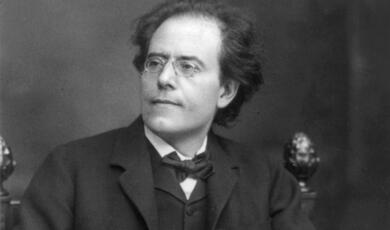Seminar: Valuing British music - Jazz futures
Share
- Details
- Transcript
- Audio
- Downloads
- Extra Reading
This seminar is a continuation from the 1pm lecture investigating jazz in Britain today.
Members of the panel include:
Norton York
Charles Alexander
John Fordham
Janine Irons MBE
Juliet Kelly
Chris Hodgkins
Download Transcript
SEMINAR - VALUING BRITISH MUSIC - JAZZ FUTURES
Professor Norton York
Introduction to Jazz Seminar
30 years ago, a new form of music economy was foreseen by Jacques Attali in his book 'Noise - the political economy of music' in his idea ofCOMPOSITION . Attali believed musicians throughout history had consistently pre-empted wider changes in economic organisation in their methods of doing business; for him, the era of Composition heralds a new set of economic relationships as the norm between artist and audience, and of course this has happened now through the internet and the way digital technology has made forms of music making and music display available to all.
In December 2006 my colleagues at the University of Westminster & I published a report for Jazz Services on the economy of jazz in Britain. I am going to draw out from that some of the key issues which I - and I speak today only for myself and not my colleagues - believe are of significance to supporting British jazz talent - both as artists and business people.
Starting with the record business, we now have a British jazz scene in which the major record labels - the traditional marker of success and influence - are overwhelmingly committed to selling US, international and old jazz, with we estimate 90% of all new jazz releases from this catalogue in the UK currently. This means that there are between 200 and 300 cd's released in the UK which are of new British jazz each of which may sell from around 200 or 300 copies through gigs up to several thousand through the internet, specialist record distributors as well as larger gigs.
But selling cd's are only one part of the jazz economy. When we look at the earnings of jazz musicians, we conducted a survey responded to by 2000 UK jazz musicians. The overwhelming place where jazz musicians earn their income is from live gigs - 49.1% of an average jazz musician's income comes from this area, as opposed to 20.7% from teaching and all other sources of music income at less than 5% (1.2% broadcasting fees; 3.6% recording & session fees; 2.2% composition and arranging fees; 3.1% royalties; 4.4% other musical employment).
As John Hiseman memorably explained at a jazz business seminar I arranged for a Radio 1 Soundcity event in 1992, his Barbara Thompson collaboration Paraphanalia succeeded economically because tours were preceded by the recording of a new album - the recordings of the album were sold at gigs on the tour so the gigs had to work financially to cover the touring budget of the band, but the long term finances of the band were covered from the profits of the record and merchandising sales.
This is what each generation of jazz musicians now must adapt and learn to work with, and the education sector and Arts Council need to consider how to support musicians to create small to medium sized businesses which can enable more jazz musicians to achieve this type of financial model for their work - and for artists beyond jazz , particularly in the classical field which is hugely over populated with expensively educated conservatoire graduates looking for largely non existent work, this is even more essential.
Using this model, sales of 1500 cd's of a debut album can provide a very healthy start for the finances of a young band, whereas this was the same number of debut album sales reported to our researchers as having been achieved by a jazz instrumental group on a major label which caused them recently to be dropped. Additionally, once labels are established then the sort of critical and commercial success of Babel or Dune can be possible, which then creates its own new opportunities to invest in future talent , free from the constraints of government controlled subsidies.
There are probably a range of possible interventions that we could all imagine to support emerging jazz artists to gain a foothold in this area. I have never been too in favour of simply giving grants to support the creation of cd's, but there could be smart ways to maximise the value that jazz musicians may gain from the money they invest in themselves - forming a purchasing syndicate, for instance, for cd manufacture would be one thing I believe worth considering which could reduce the cost of entry to the market for debut cd producers while raising the profits of those returning for new product manufacture. I would be interested in other ideas that our seminar panellists have in how best independent jazz artists can be supported to maximise their investment in their art through cd recordings and use of new technologies. Juliet Kelly's website, I know, has a number of imaginative elements in this regard.
The area of work that seems to me to be in need of further development and support is the live gigging venues in the UK. In our report we estimate there are around 45,000 jazz performances in the UK each year, with festivals providing a growth area. These gigs come from a pyramid of three main parts:
1. at the base level there are around 550 residencies in small venues hosting nightly, weekly or monthly jazz gigs;
2. at the next level are the 350 or so jazz clubs and regular venues, promoting gigs often and in the main to a more specialist or core jazz audience;
3. and at the top end are the 100 or so large arts venues in which jazz is part of a broad range of performances on show to the public; in these venues the recent coalition of 'Music Beyond the Mainstream' promoters has good potential for developing touring opportunities around these venues for our leading jazz artists.
Of the promoters we surveyed 62% of them had run a jazz festival in the previous 12 months that attracted an audience of more than 1000 people, with more than 200 jazz festivals being held around the UK in any one year. Most significantly 39% of these festival promoters received commercial sponsorship compared with one 8% of regular gig promoters. When we consider that according to our estimates jazz attracted £600,000 worth of commercial and private sponsorship in a year, compared with the £20 million total given to music and opera companies in 2004-05, there must be scope for further development here.
Many companies seem interested in backing jazz festivals, with the Royal Bank of Scotland and Northern Rock banks from the financial sector, Ibis, Malmaison group and City Inn from the hotel sector, alcoholic drinks companies such as Greene King, and Grolsch, and a range of other companies such as Peugeot, P & O and Starbucks all getting involved in regional festivals, usually somewhere near their main markets or corporate base.
The issue is how we attract more companies to back jazz festivals and to extend their investment in jazz to the live gigging circuit. This may mean that jazz promoters need support in developing their businesses so they can offer the right type of marketing opportunity for major sponsors to consider. Given that this is the sector that not only provides the largest income stream for jazz musicians, it is also the prime market place for jazz performers to sell their cd's at maximum profit - full retail price, alongside associated merchandise such as T shirts.
Furthermore, there is not yet in Britain a prize for jazz achievement of comparable financial worth to the Jazzpar Prize in Europe. This prize attracts significant sponsorship from the Scandinavian Tobacco company of Denmark and has been won by Tony Coe in 1995 and Django Bates in 1997, with a current value to the winner of around £20,000. Perhaps this is another initiative that could be considered for development as a commercial enterprise. With the right promotion this type of prize could be linked to a tour or a festival and broadcasts, all of which could attract media attention and raise the profile of jazz in the UK.
Support for the grassroots jazz gig promoters certainly seems essential to develop the market for live musicians to work in. According to our figures 37% of promoters create only 1-10 gigs per year, while the next 18% do only 11-20 gigs in a year - with an average entrance price of £4.93.
Two things surely need consideration; firstly, live performance is increasingly a premium experience. If promoters and musicians want to develop their market, surely we need to help promoters create events featuring jazz which enable them to charge a higher price at the door, producing better profits to be re-invested in more gigs, and hopefully paying the musicians a higher rate for their work. Secondly, there needs to be some consideration of how we can support venue promoters to increase the number of gigs they programme, also expanding the market for jazz. This may take the support of the Arts Council, perhaps working through an intermediary (just as the Circuit Magazine initiative in the pop world brought together the interests of small rock promoters in the 1990's). There may be a need for the adaptation of the facilities in some small venues, or other practical help that may be required to create the circumstances for a step change to happen for each promoter. This is no easy task, but if the grass roots of the jazz business are to grow it is clearly necessary.
Our research shows that the venues that charge more for jazz gigs are theatres and, perhaps significantly, the restaurant and café sector. The theatres are also the venues which attract the higher levels of audiences to gigs (78% of theatres attract audiences of 76 or more); However, 73% of the restaurant and café sector's promoters attract less than 75 people to their gigs. Surely, this suggests a number of possibilities:
- Can restaurants and cafes be helped to attract and/or accommodate more people to their gigs, for which they are already charging a higher ticket price?
- Can more restaurants and cafes be brought into the jazz promotion sector to follow the lead of the existing restaurant/café venues?
- Can other jazz clubs learn from the theatre and restaurant/café sectors both to increase audience numbers and raise income through increased ticket prices?
I leave it to the jazz specialists to consider the practicalities of these ideas, and further detailed research may be needed to develop them further, but the live jazz sector is clearly one in which there is potential for growth with the right strategic leadership.
Finally, education presents a significant opportunity for jazz musicians. There are established providers in higher education and further education, but these are geographically patchy across the UK. London predominates, which is not surprising given that 53% of the UK's jazz musicians live in London or the South East. However, there are significant areas of jazz education in a number of other key areas of the country - the North East, the Midlands, Cardiff and Edinburgh in higher education; while pockets of key activity exist in further education, from Chichester to Leeds as well as the HE areas already mentioned. Large areas of the country, therefore, are left unserved by significant jazz provision in HE or FE - the south west, the East of England are two obvious areas in which new initiatives could be developed with little or no competition. The South West of England has the third highest population of jazz musicians in the UK, at 12%, so this in particular looks ripe for some form of renewal of its Jazz HE presence, perhaps with the involvement of Dartington; while the East of England currently has a small jazz musician population, but in Aldbrough there is a significant musical organisation with a remit to develop youth music, so perhaps that could be a place to start for an innovative idea.
In schools, there is good coverage for jazz in music services, with an average English county or borough music service providing an average of 2.6 jazz ensembles. Like pop and rock the great missed opportunity by jazz musicians is work as class music teachers. According to my University of Westminster report 'Valuing School Music' in 2001 only 2.9% of class music teachers in England and Wales had a jazz, pop or rock first degree, compared with 78% with a classical music degree. As jazz is only one area of music making up this 2.9%, there may be as few as 120 class music secondary teachers in England and Wales with formal jazz education qualification. When we consider that a class teacher working outside of London is likely to be earning an average of nearly £29,000 as a salary, this compares most favourably with the fact that only around 15% of UK jazz musicians have told us in our survey that they earn more than £25,000 per year from their musical work. If a significant number of jazz music teachers were to emerge over the next 20 years into our schools, it could not only bring a much needed transformation of our secondary school music system, it could also bring a whole new level of stability to jazz music making at the grass roots as it would provide jazz musicians with a reliable income from which all sorts of side projects may develop. While this may appeal more to the degree educated part time musicians, rather than the elite players, it is this first group that could provide the basis of a national network of jazz activists who could support a more vibrant jazz live scene - while their pupils would inevitably become part of the future jazz audience. There are still obstacles to some musicians without a first degree in any subject progressing onto a PGCE and qualified teacher status. However, these are obstacles that the Teacher Training Agency, the Musicians' Union and other bodies are actively aiming to address as part of their Music Manifesto commitments.
Finally, there is the prospect of the centenary of jazz coming to Britain in 2019. As it is only 12 years away, it gives us the prospect of considering where we would like the jazz scene for British musicians to be in the next decade or so. Here is my wish list:
- A network of independent and mutually supportive independent jazz labels
- A promoter network at grass roots level which supports new talent emerging
- A network of secondary jazz class teachers - not peripatetics - working in 10% of the UK's schools (smoothing of the order of 1000 teachers)
- At least one high quality HE and FE provision in each region of Britain, with a focus on developing mature British jazz talent as well as supporting the emergence of new artists;
- Strategic support for established small and medium sized jazz labels and promoters to create large festival events in the UK and to promote British jazz across Europe and world wide.
- A major jazz festival to celebrate the jazz century in Britain to show case all of the above.
Over to the panelists...
©Professor Norton York, Gresham College, 24 April 2007
This event was on Tue, 24 Apr 2007
Support Gresham
Gresham College has offered an outstanding education to the public free of charge for over 400 years. Today, Gresham plays an important role in fostering a love of learning and a greater understanding of ourselves and the world around us. Your donation will help to widen our reach and to broaden our audience, allowing more people to benefit from a high-quality education from some of the brightest minds.


 Login
Login






